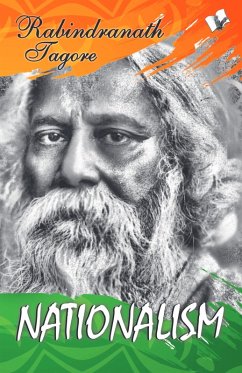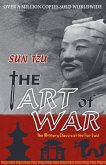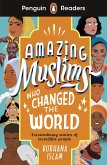Nationalism is a collection of lectures delivered by Rabindranath Tagore in Japan, in 1916. This collection is divided into three essays: Nationalism in Japan, Nationalism in the West, and Nationalism in India. During the time when these lectures were delivered, the First World War was unfolding. Tagore's lectures critiquing nationalism led to a mixed response.
The lectures critique the concepts of nation and nationalism that turn men and women away from their self-sacrificing and creative nature. Tagore cautions us against aggressive imperialistic tendencies of nationalism found in the West and Japan. He proposes an alternate definition of nationalism for India-one that is shaped through the works of medieval mystics, poets and spiritual figures, such as Guru Nanak, Sant Kabir Das, and Chaitanya Mahaprabhu.
Tagore's thoughts on nation and nationalism bore a lasting influence on Mahatma Gandhi and Jawaharlal Nehru. Interestingly, Tagore criticized Gandhi's Non-cooperation Movement as narrow, and dangerous. In his infamous meeting with Gandhi in 1921, he focused on India's hospitality and the country's potential to contribute towards creating a more united world. These discussions helped Gandhi rework the meaning of nationalism. Tagore's ideas on diversity and inclusivity went on to help Nehru shape up his vision of India as a synthesis between tradition and modernity.
The lectures critique the concepts of nation and nationalism that turn men and women away from their self-sacrificing and creative nature. Tagore cautions us against aggressive imperialistic tendencies of nationalism found in the West and Japan. He proposes an alternate definition of nationalism for India-one that is shaped through the works of medieval mystics, poets and spiritual figures, such as Guru Nanak, Sant Kabir Das, and Chaitanya Mahaprabhu.
Tagore's thoughts on nation and nationalism bore a lasting influence on Mahatma Gandhi and Jawaharlal Nehru. Interestingly, Tagore criticized Gandhi's Non-cooperation Movement as narrow, and dangerous. In his infamous meeting with Gandhi in 1921, he focused on India's hospitality and the country's potential to contribute towards creating a more united world. These discussions helped Gandhi rework the meaning of nationalism. Tagore's ideas on diversity and inclusivity went on to help Nehru shape up his vision of India as a synthesis between tradition and modernity.
Dieser Download kann aus rechtlichen Gründen nur mit Rechnungsadresse in A, B, BG, CY, CZ, D, DK, EW, E, FIN, F, GR, HR, H, IRL, I, LT, L, LR, M, NL, PL, P, R, S, SLO, SK ausgeliefert werden.









